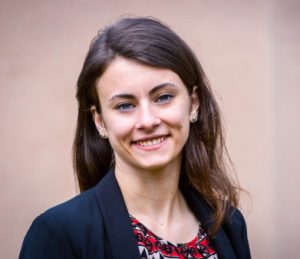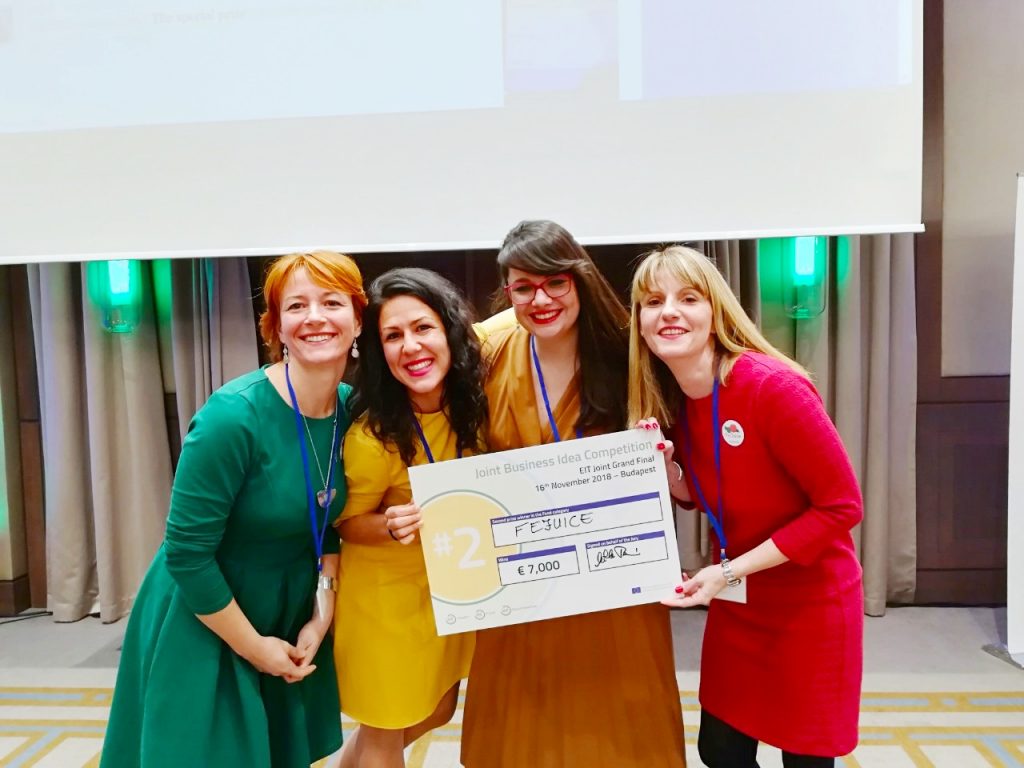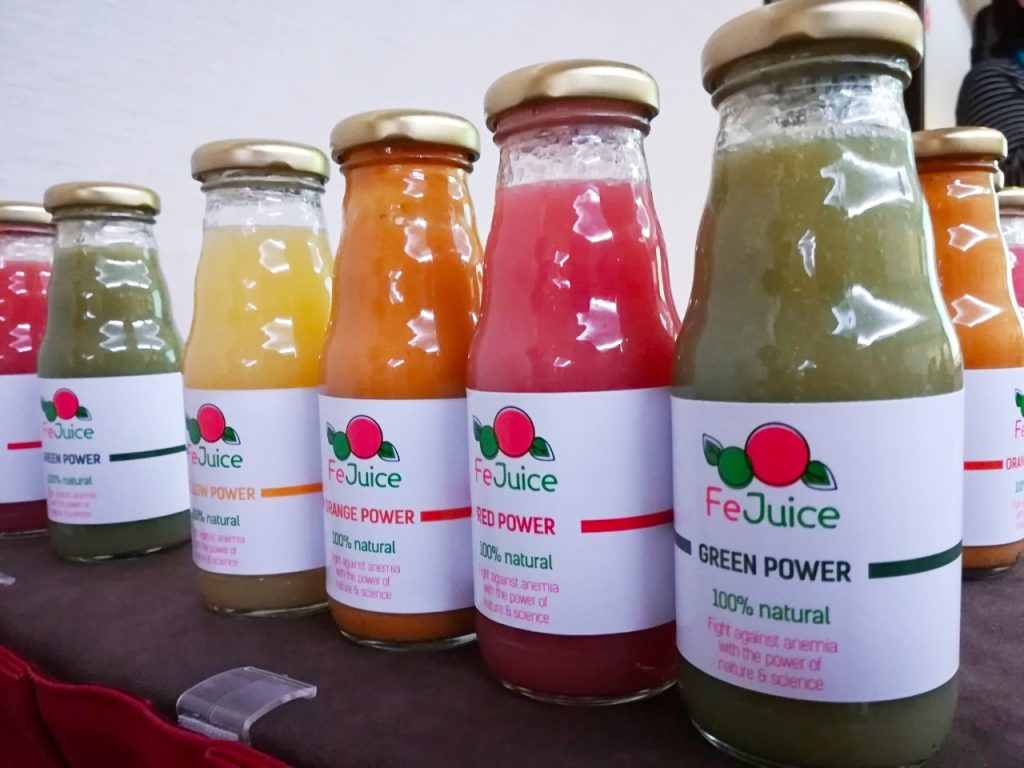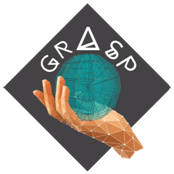 The GRASP project in the field of artificial intelligence, dealt by researchers from the Faculty of Sciences, Novi Sad meets very high and precise criteria of the Science Fund, which finances projects with clear and sustainable goals, a concept and systematic and well-designed methodology.
The GRASP project in the field of artificial intelligence, dealt by researchers from the Faculty of Sciences, Novi Sad meets very high and precise criteria of the Science Fund, which finances projects with clear and sustainable goals, a concept and systematic and well-designed methodology.
The research must have a high level of scientific excellence, quality and innovation, and the project “GRASP” (Graphs in Space: Graph Embeddings for Machine Learning on Complex Data) deals with the problems of graphs, i.e. networks, in the “traditional” form of data – table, with special reference to the application of artificial intelligence techniques. Graphs, or networks, are one of the most important ways to understand the world around us. The points (nodes) of a graph can represent entities (e.g. people), while the connections (branches) between points express a relationship or interaction (e.g. acquaintance) between them. In this way, almost every phenomenon, from the level of atoms to galaxy levels, can be modelled in the form of a graph. On the other hand, one of the key operations available on graphs is their transformation into a “traditional” form of data – a table. In a table, entities are represented by rows, while columns indicate attributes that describe entities. If we go back to people, for example, the attributes that describe them can be name, surname, height, weight, etc.
The field of graph embedding deals with ways to transform graphs into tabular form, which is important because it allows the application of “traditional” tabular techniques of artificial intelligence (more precisely, machine learning) and data analysis to achieve insights that would be difficult or impossible by direct observation of networks. For example, by using well-known tabular techniques on an interaction graph of a Facebook user, we can (1) classify users into some categories of interest, (2) identify communities, (3) recommend “friends,” and (4) predict whether two users will interact in the future.
Improving graph mapping techniques in this project will enable researchers and experts from Serbia and the world to apply machine learning and data analysis techniques in areas where this was not previously possible or did not give satisfactory results, primarily in scientific research (e.g. bioinformatics, sociology, economics), but also in technology and industry (eg predictive analysis of energy, telecommunications and transport networks), education (e.g. predictive analytics based on data from e-learning systems), and society in general (e.g. improved/new services of social networking sites, or even new types of social networking that were not possible before).
The project will last for two years, with a budget of over 120 thousand Euros, and the team consists of both experienced and young researchers from the Faculty of Sciences, Novi Sad, with an emphasis on researchers at an early stage of their careers. All participants are employed at the Department of Mathematics and Informatics, the Chair of Computer Science and the Chair of Information Technology and Systems. The project leader is Miloš Radovanović, PhD and the team also includes: Mirjana Ivanović, PhD, Vladimir Kurbalija, PhD, Miloš Savić, PhD, Brankica Bratić, Nemanja Milošević, Dušica Knežević and Aleksandar Tomčić.

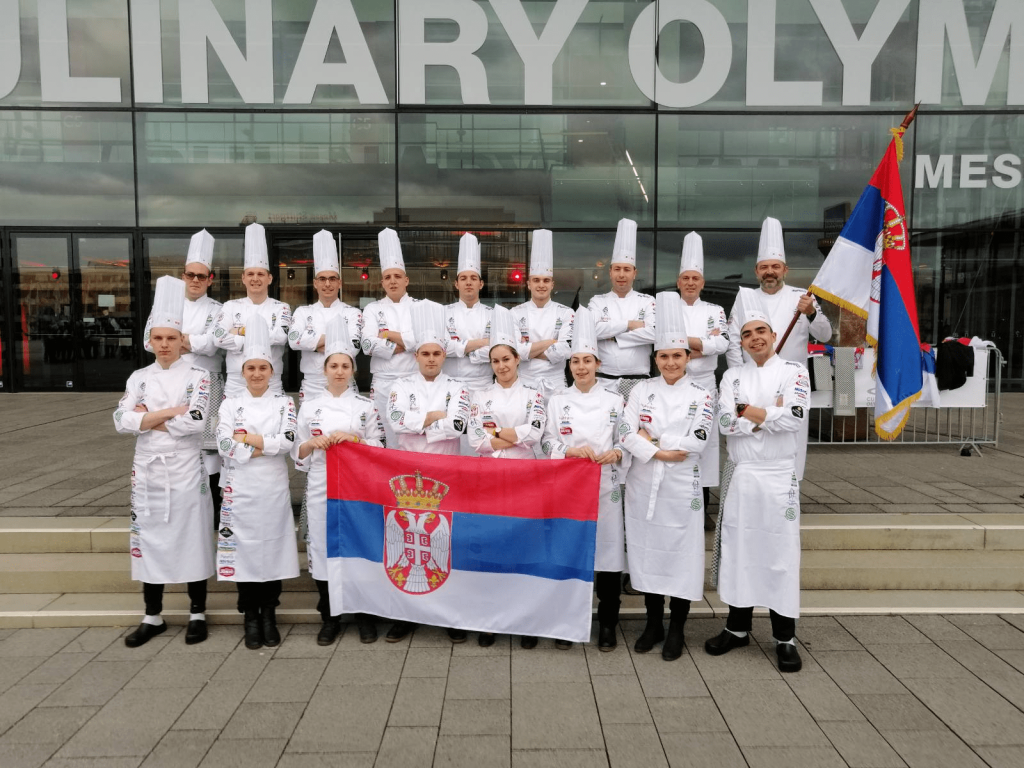
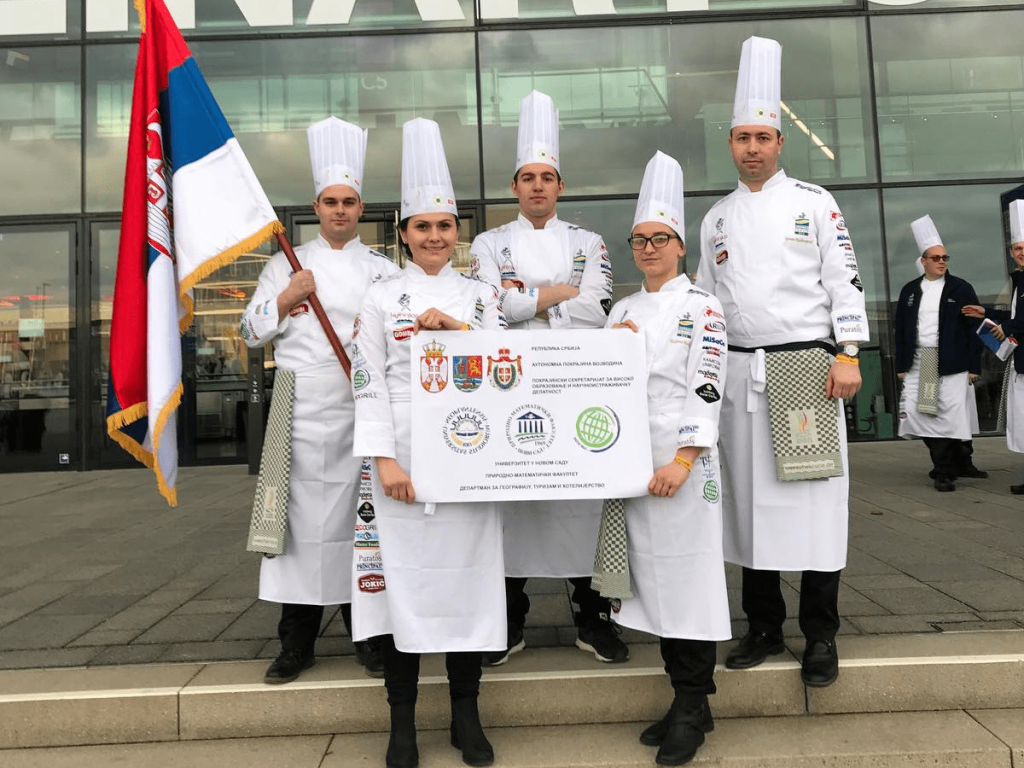
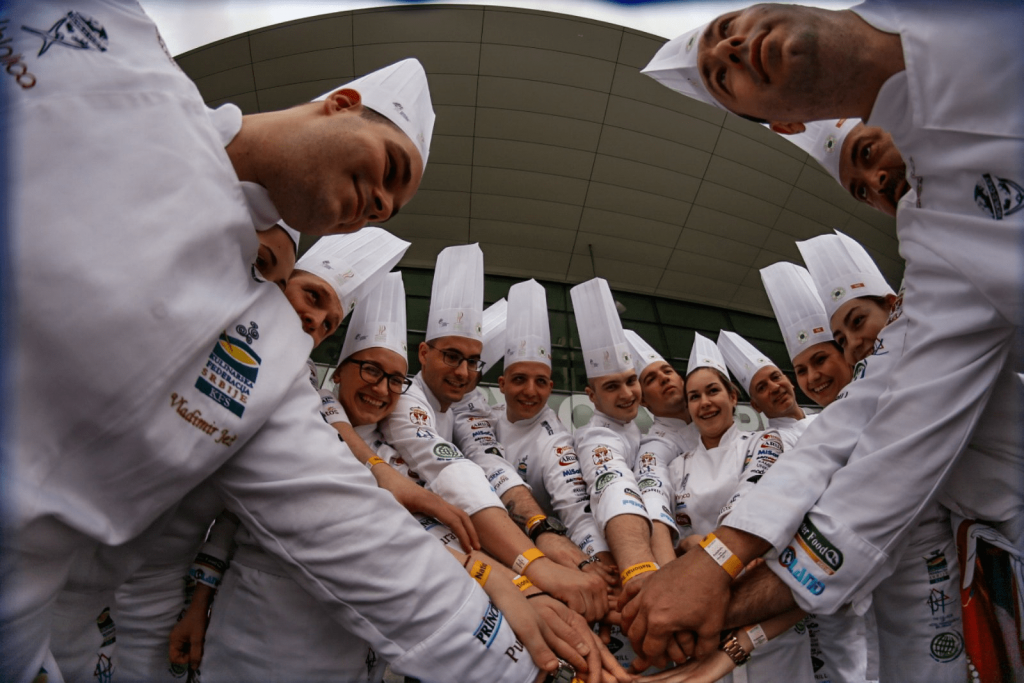
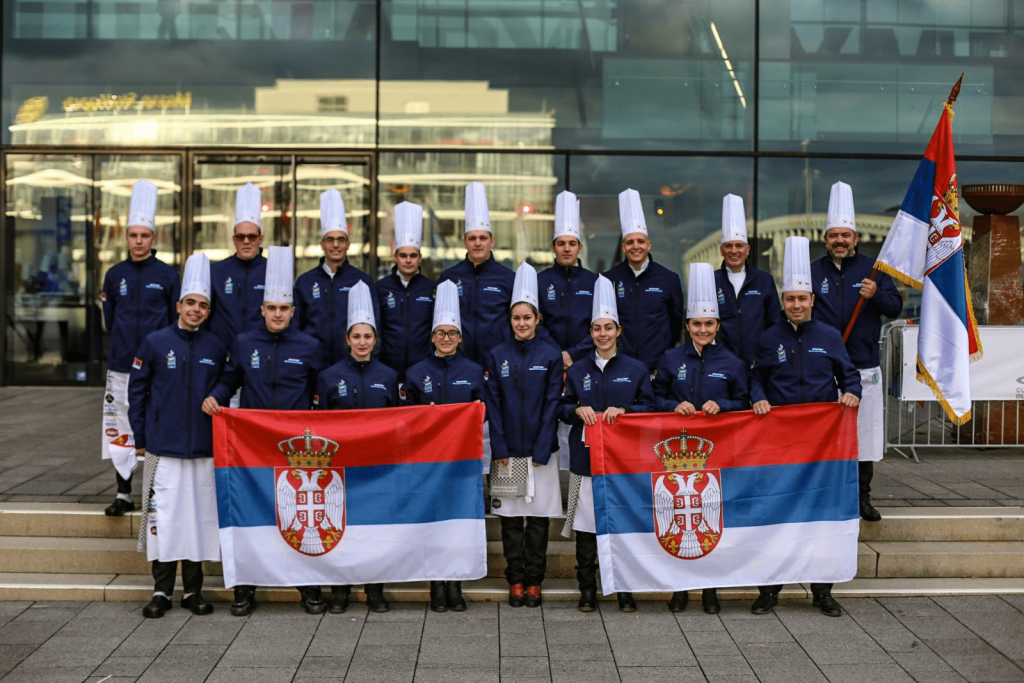
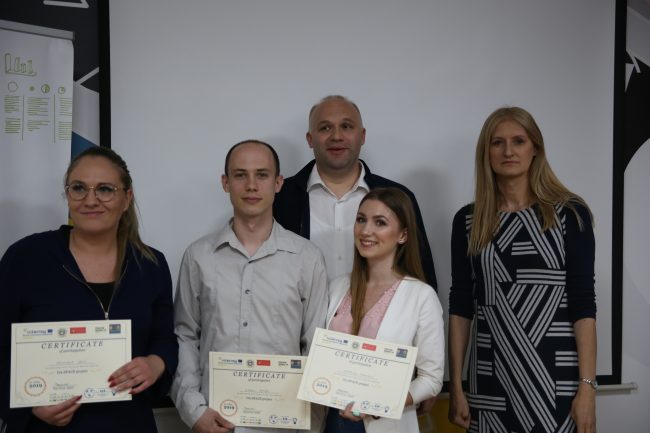 The Demo Day of the Second Cycle of Open Innovations Lab of the DA-SPACE project was held on April 18th in the Business Incubator, Novi Sad.
The Demo Day of the Second Cycle of Open Innovations Lab of the DA-SPACE project was held on April 18th in the Business Incubator, Novi Sad. Our team from the Department of Geography, Tourism and Hotel Management, the Faculty of Sciences in Novi Sad, achieved outstanding results – three medals and one certificate of merit. Danica Rinčić won a silver medal in the pasta category, Aleksandra Dimitrijevic won a bronze medal in the risotto category, Miloš Kuzmanović won a bronze medal in the risotto category, and Tatjana Bodvoji won a junior merit award in the vegetarian dish category.
Our team from the Department of Geography, Tourism and Hotel Management, the Faculty of Sciences in Novi Sad, achieved outstanding results – three medals and one certificate of merit. Danica Rinčić won a silver medal in the pasta category, Aleksandra Dimitrijevic won a bronze medal in the risotto category, Miloš Kuzmanović won a bronze medal in the risotto category, and Tatjana Bodvoji won a junior merit award in the vegetarian dish category.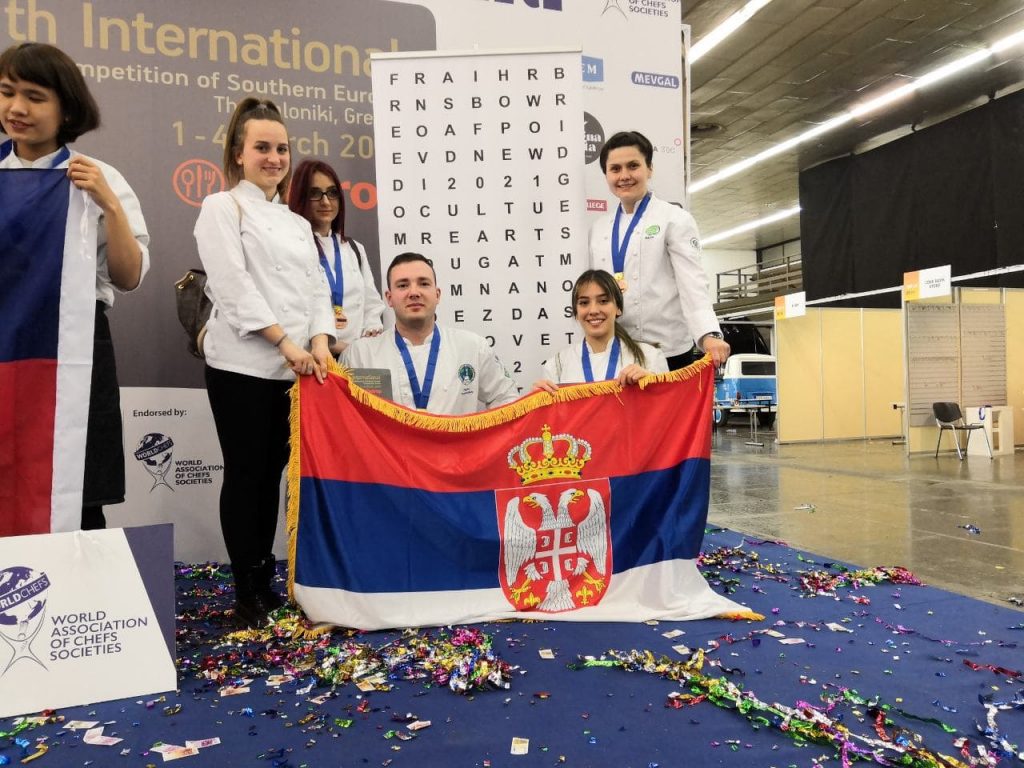 One of our team’s objectives at the competition was to promote authentic food from Vojvodina. The dishes for the competition were prepared in a modern way from local food products: mangulica (Mangalitza) bacon, wine from Fruska Gora, fungi from Fruska Gora, carrots from Begec, cheese from Sombor, wheat, proso millet. Our gastronomy team’s objective to promote local products at this prestigious competition was supported by the Foundation 2021, Novi Sad – European Capital of Culture. Students were mentored by: Goran Radivojevic, Skills Teacher, Dr Bojana Kalenjuk, Assistant Professor and Maja Banjac, Teaching Assistant.
One of our team’s objectives at the competition was to promote authentic food from Vojvodina. The dishes for the competition were prepared in a modern way from local food products: mangulica (Mangalitza) bacon, wine from Fruska Gora, fungi from Fruska Gora, carrots from Begec, cheese from Sombor, wheat, proso millet. Our gastronomy team’s objective to promote local products at this prestigious competition was supported by the Foundation 2021, Novi Sad – European Capital of Culture. Students were mentored by: Goran Radivojevic, Skills Teacher, Dr Bojana Kalenjuk, Assistant Professor and Maja Banjac, Teaching Assistant.
